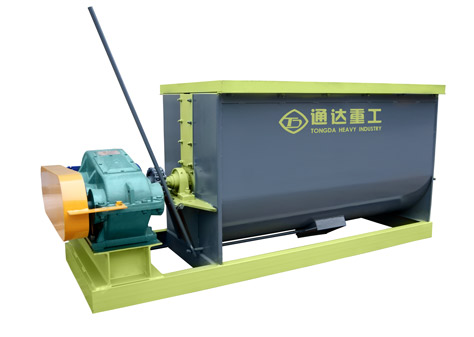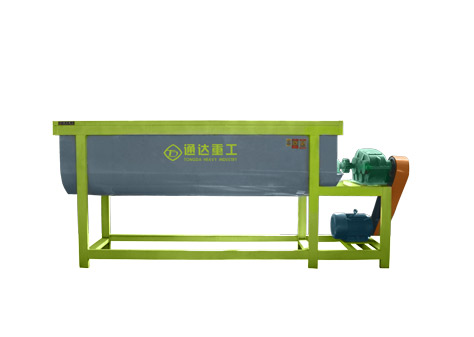Ms Phoebe Kirigo, one of the directors of Agri-Flora Organic Fertiliser Company in Nyahururu town, Laikipia County, shows some of the raw materials used to make fertiliser on November 19, 2018. PHOTO | STEVE NJUGUNA | NMG
Heaps of cow dung drawn from cattle ranches and farms in parts of Laikipia County is what hit you as you enter Mr Kuria Kiboi’s farm. There are also mountains of chicken, goat and rabbit waste. Fertilizer Granulator Machine

Mr Kiboi’s business is to turn the waste into manure. He is the founder of Agri-Flora Organic Fertiliser Company in Nyahururu town.
“I have been doing research about the idea of transforming manure into a more efficient commodity for the last 15 years. My idea initially was just to crush the manure and pack it as powder but with time I realised I could pack it into a fully processed product, and therefore I set up the company early last year,” Mr Kiboi told Enterprise at his factory.
Kenya has been seeking to boost crop production to achieve food security. Experts say the current low farm production is due to massive degradation of the soil.
Mr Kiboi says his aim is to help address this problem.
“We employ natural raw materials in the manufacture of the fertilisers,” he says.
He plans to roll out high scale commercial production to meet the increasing demand.
So how does the manufacturing process goes?
Manure is kept for a period of six months to ensure it fully decomposes. It is then mixed with baked bones and ash which are rich in minerals like calcium and potassium.
“The bones are rich in phosphorus and calcium. All we do is to burn them up to break down the enamel, before we crash them into powder for easier absorption into the soil,” narrates Mr Kiboi.
He says that a fortified foliar made from fruits refuses, milk and other products is added to the crushed powder to add nutrients.
“The mixture is then crushed and put in a granulator machine which converts it into granules,” he adds.
The granules, Mr Kiboi notes are then fed into a drier or left to dry naturally for two weeks after which they are fed into a screener that grades it into the standard fertiliser size.
Finally it is weighed and packed into 50kg bags which goes for Sh2,500 each. This is cheaper compared to the normal fertiliser in agro vets.
“We are in the business of producing 100 percent organic fertilisers. This venture hopes to help farmers increase their yields while providing safe foods,” notes Mr Kiboi.
The enterprise also produces liquid fertiliser (foliar) which a farmer dilutes one litre with 40 litres of water during top dressing.
“This year we experienced high demand from referrals by farmers who used our fertiliser last year and were impressed by the production,” he says.
The journey to starting the company and working to have it well-grounded has not been easy, Mr Kinoti says.
First, he needed a capital of about Sh10 million to procure the machines, install them and employ workers. Getting the funds was no easy task.
Another setback is the high cost of power, which is also unreliable.
“Challenges are there in any upcoming company and ours is not an exception. The main one include power availability and back-up as some time we have huge bills,” he says. “Marketing of our products has also been a challenge to us.”
The company has more than ten employees. He however regrets that the youth are few among the staff.
“I have not been able to employ young people since they don’t want technical jobs. These jobs are good yet the youth keep complaining there are no jobs,” he says.
He encourages the youth not to discriminate against technical jobs as they can learn a lot of skills, which they can apply in their own businesses. He also wants young people to be creative and implement their ideas in order to improve their lifestyle and create employment for others.
Mr Kiboi is looking to expand his business, and has set sights on being a key supplier of the country’s fertiliser in the next decade.

Npk Production Line He notes that the company has also ventured in other areas of business such as production of farm machinery, drilling boreholes and motor vehicle maintenance.